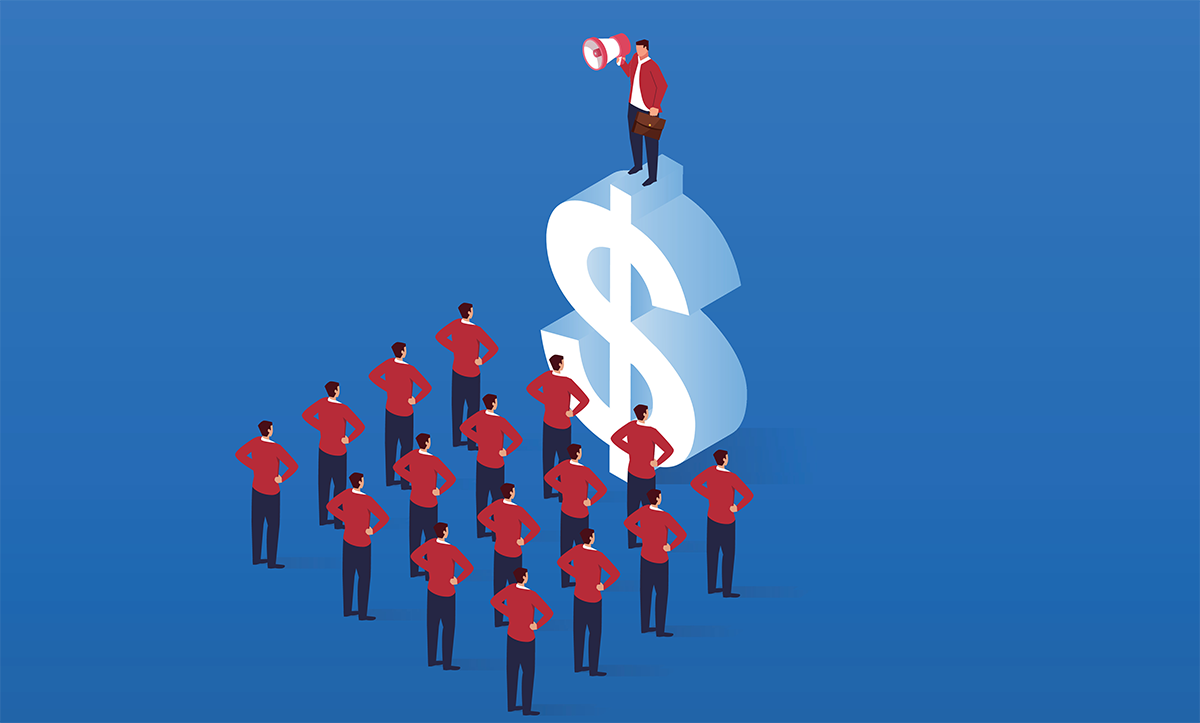
The U.S. Federal Reserve is poised to make two decisions that may drastically impact the outlook for corporate finance: when to raise interest rates and when to curtail bond purchases. Treasury and finance professionals assessing the potential impact of these moves need to consider several key factors in their analysis.
For context, the U.S. economy has rebounded faster than expected from the early stages of the coronavirus pandemic, in no small part because of the Fed's swift and extraordinary support. Since July 2020, the Fed's quantitative easing (QE) program has involved purchasing approximately $120 billion of bonds each month in order to support the market. The Fed also cut the federal funds rate to nearly zero at the onset of the pandemic in March 2020.
Now, discussions have started among chairman Jay Powell and the seven Fed Board of Governors members about whether, and when, they can start to reduce that support. The decision could have significant consequences for corporate treasuries.
Both QE and low interest rates are intended to make it easier and cheaper for companies to borrow. Together, the programs helped many businesses stay afloat when revenue dropped as government-mandated lockdowns were implemented. Reversing them would appear, at first blush, to pose significant headwinds for corporate financiers.
Furthermore, neither turning off QE, nor raising interest rates, is as easy as flipping a switch. Memorably, when the Fed announced plans in 2013 to withdraw similar supportive measures following the Great Recession, the resulting market turbulence turned into a mini-crisis of its own, which came to be known as the "taper tantrum."
Knowing these risks, many corporate treasurers are currently adjusting their stances in order to minimize the impact to their organization of higher interest rates and reduced QE, and to safeguard against the collateral damage of another market "tantrum" should the worst-case scenario play out. But there is good news over both the near term and long term that should provide some reassurance.
To start, most corporate debt payments are not immediately sensitive to changes in the federal funds rate because companies generally rely on fixed-rate debt with longer maturities. Even if the Fed raises interest rates soon, most corporate financing should be insulated in the near term. Moreover, unlike the original taper tantrum in 2013, this time around companies have hoarded record amounts of cash, so most should have access to adequate liquidity moving forward.
Corporate executives are also concerned about the long-term consequences they might face if the Fed does not respond decisively to the rebounding economy. For example, a sustained period of low interest rates might encourage companies to take on excessive debt. Indeed, U.S. businesses set a new record this year for aggregate corporate debt, with an astounding $11.2 trillion, about half the size of the U.S. economy. For these reasons, the Fed is understandably hesitant to continue deploying stimulative measures if they are no longer warranted.
Raising interest rates also combats another significant economic risk factor: inflation. Inflation is actually the number-one risk that CFOs cited in a recent survey, surpassing not just interest rate hikes but other significant risks like a return of Covid-19, cybersecurity, and shifts in consumer demand. Inflation has climbed higher than expected—rising 5.4 percent as of June 2021—and CFOs have expressed concern that the Fed may not be able to stop prices from continuing to rise.
With respect to QE, although it's impossible to predict with certainty whether there will be another market tantrum, the Fed has received plaudits for its vastly improved communications about future plans. The 2013 disruption was attributed in large part to the fact that the tapering announcement came as a surprise to many market participants. This time around, officials are communicating months ahead of beginning any reduction.
Business leaders are understandably conservative in their outlook, but the worst-case scenarios for the Fed's upcoming decisions, including a repeat of the 2013 taper tantrum, would be surprising. Policymakers' tactics have matured, and corporations' financials are stronger than during the last economic rebound. Neither side looks poised to ruin the mood—for now.
Recommended For You
 Robert A. Santella is the CEO of IPC. His accomplished career in the financial and capital markets spans more than three decades and includes extensive experience across various asset classes; ecosystem participants; and front, middle, and back-office trade lifecycle workflows and systems. Santella holds a B.S. in economics from the University of Pennsylvania's Wharton School. He also holds the CPA designation and FINRA Series 7, 24, 63, and 99 securities registrations.
Robert A. Santella is the CEO of IPC. His accomplished career in the financial and capital markets spans more than three decades and includes extensive experience across various asset classes; ecosystem participants; and front, middle, and back-office trade lifecycle workflows and systems. Santella holds a B.S. in economics from the University of Pennsylvania's Wharton School. He also holds the CPA designation and FINRA Series 7, 24, 63, and 99 securities registrations.
© Touchpoint Markets, All Rights Reserved. Request academic re-use from www.copyright.com. All other uses, submit a request to [email protected]. For more inforrmation visit Asset & Logo Licensing.



